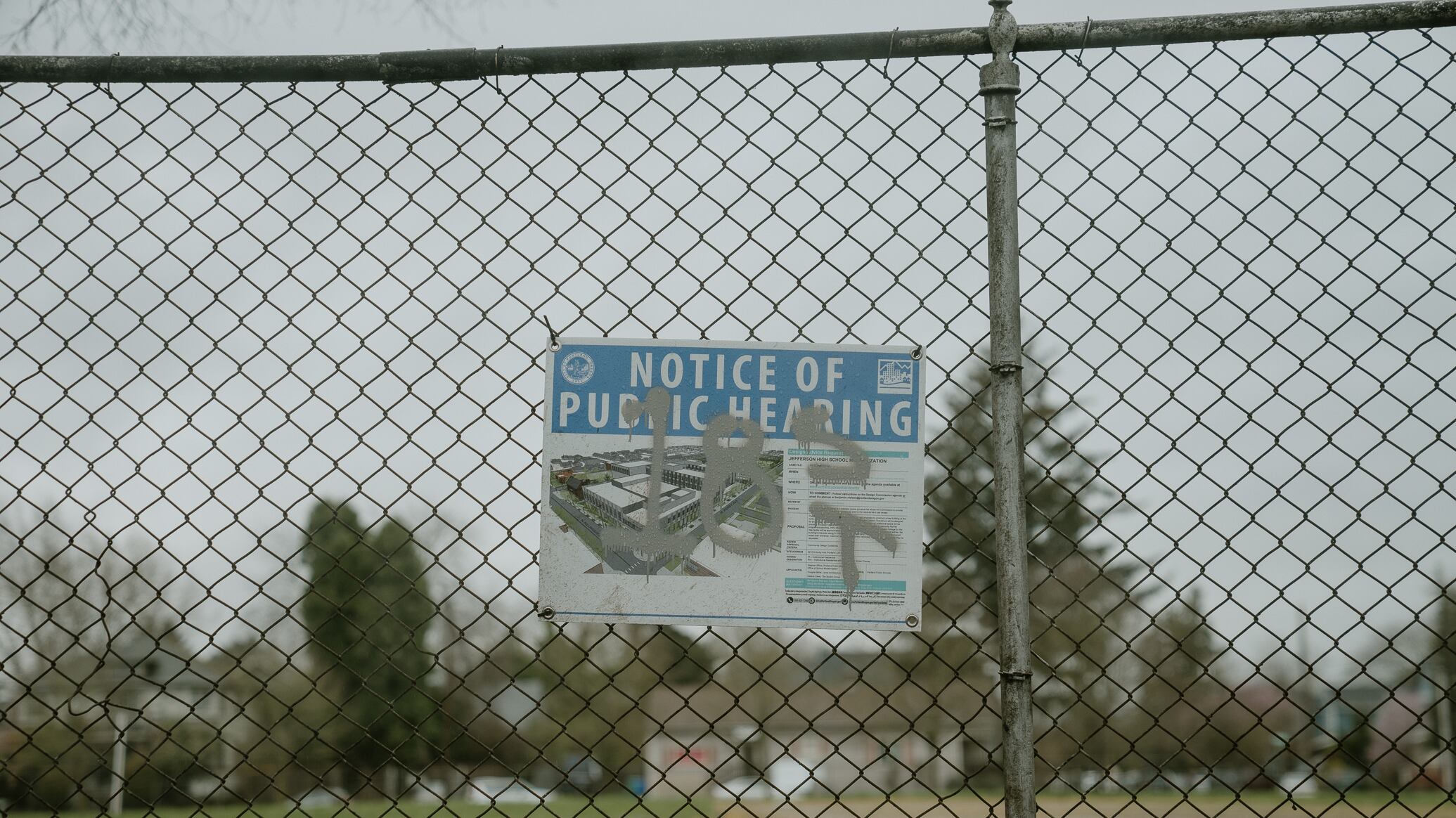ACCOUNTABILITY COMMITTEE WARNS PPS IS OVERBUILDING: In March, WW reported how annual projections by Portland State University’s Population Research Center indicated Portland Public Schools would in 10 years have only enough students to fill seven of its nine high schools (“Too Many High Schools,” March 19). Though the $1.83 billion school bond ultimately passed with overwhelming voter support, a watchdog group is now sounding the same alarms. Tucked away in a quarterly report by the Citizens Bond Accountability Committee to go before the Portland School Board on Oct. 14 is a damning bullet point. “The BAC would like to share the opinion that the district should not be building such large high schools when there is not the student body to justify it,” it reads. “Given declining enrollment and decreasing birth rates this issue is even more pronounced given the project budget issues.” (The BAC is a PPS-established citizens committee that reviews whether bond funds are going toward their assigned purposes.) The report will come to School Board members on the same night that comprehensive plans for modernizing Jefferson and Cleveland high schools will be on the table. Declining enrollment is a problem that district officials have vowed to reckon with this year, so much so that they’re wading into an explosive conversation whether to close some schools.
GAS TAX REFERRAL CAMPAIGN KICKS OFF: The No Tax Oregon campaign, which hopes to refer the recently passed 6-cent-per-gallon gas tax increase to voters, launched its campaign Oct. 13. One of three leaders of the effort, state Rep. Ed Diehl (R-Scio), says more than 400 people joined a conference call to plan strategy. The measure lawmakers passed, House Bill 3991, is currently sitting on Gov. Tina Kotek’s desk as the clock for referral ticks. The campaign has 90 days from when the Legislature adjourned Oct. 1 to gather the 78,115 valid signatures needed to qualify for the November 2026 ballot, but they can’t get started until Kotek signs the bill—and she has until Nov. 12, 30 weekdays from session end, to do that. Diehl and his co-leaders, Senate Minority Leader Bruce Starr (R-Dundee) and Jason Williams, executive director of the Taxpayer Association of Oregon, know they will have little time and, potentially, little money since the final transportation bill mollified some critics, including the Oregon Trucking Associations and the Oregon Auto Dealers Association. Diehl is nonetheless optimistic, pointing to more than 2,100 volunteers who have signed up to organize signature gathering. “I’m an engineer who built big systems,” Diehl says. “And what I’ve learned is, every big project is a series of small projects—and we can handle that.”
PORT OF ARLINGTON FACES DISSOLUTION: The Port of Arlington plays an important economic development role in Gilliam County, the state’s third smallest by population. But in June, Secretary of State Tobias Read’s office presented the port with some shocking news—because it had failed for three consecutive years to file audited financial statements with the state as Oregon law requires, Gilliam County would have to begin the process of dissolving the port. It’s extremely unusual for a government entity to miss filing three years in a row, according to Read’s office, and the notice of potential dissolution came as a “total surprise” to Gilliam County’s top elected official, Judge Cris Patnode. Emails show the port and its auditing firm, Pauly Rogers, failed to submit the required documents to the state but has now agreed on a corrective action plan to file financials for 2022, 2023 and 2024. The first of these is due Oct. 31. In the meantime, state law requires Gilliam County to proceed as if the port will be dissolved. Patnode says nobody wants that outcome, and she’s confident it won’t happen. “The Port of Arlington is very important, active and vital,” she says. A secretary of state’s audit earlier this year noted a pandemic-caused spike in governments failing to file their financials on time. The secretary reported that in 2024, 109 of the nearly 1,200 government entities required to file audited financials with the state failed to comply—that’s up from 19 in 2017, increasing the risk that governments are hiding bad news from their constituents.
FIVE-DAY KAISER STRIKE BEGINS: Thousands of Portland-area Kaiser Permanente nurses, lab workers and other staff went on strike Oct. 14, joining a massive work stoppage set to last five days across multiple states, to pressure the health care giant to give in to union demands as contract negotiations drag on. Kaiser, in negotiations with the Alliance of Health Care Unions, has offered to increase pay across the board by 21.5% over four years, short of the 25% unions seek. Labor groups say inadequate pay leads to turnover and recruitment challenges, and unsafe staffing levels in turn. “We have a duty to speak out,” said Oregon Federation of Nurses & Health Professionals president Sarina Roher, minutes after the picket began. “We are not walking out on our patients. We are simply standing up for them.” Kaiser says it already offers competitive pay and benefits, and that worker demands are “out of step with today’s economic realities and rising health care costs.” To accept those demands, Kaiser says, would mean higher costs for its members. At one strike location, Kaiser Permanente’s Sunnyside Medical Center, union members converged in the blue light of dawn and greeted smiling workers streaming out of the hospital entrance.

